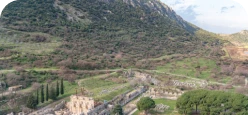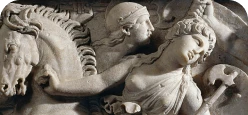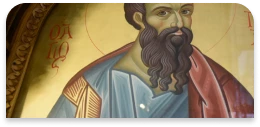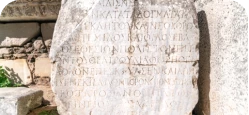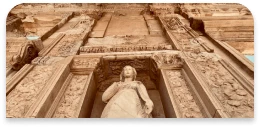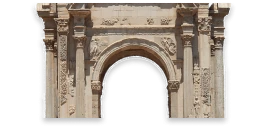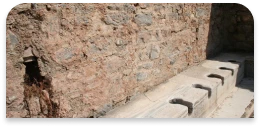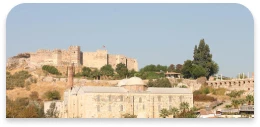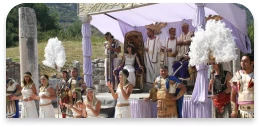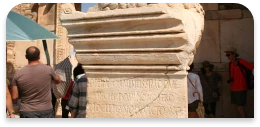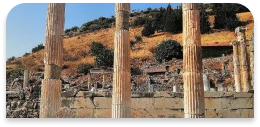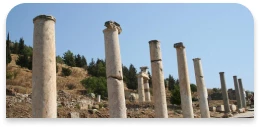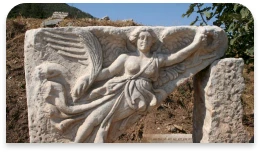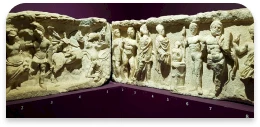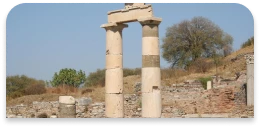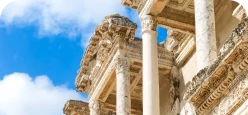Hermes
Hermes was the herald god for the Olympians. He was the son of Zeus and Maia. He was the safeguard of trade roads as a god of traders, merchants. He was well-known for his cunning and shrewdness. He stole the cattle of Apollo and offered his invention lyre in exchange for them. So Hermes used a heralds staff from Apollo as the god of shepherds.
One of his duty was to guide the souls of the dead down to the underworld. He was also closely connected with bringing dreams to mortals. Hermes was usually depicted with a broad-brimmed hat or a winged cap, winged sandals, and the heralds staff (kerykeion in Greek, or Caduceus in Latin). The clothes he wore, were usually that of a traveler, or that of a workman or shepherd. Other symbols of Hermes are the cock, tortoise, and purse or pouch.
Hermes was the patron of roads and boundaries. His name came from herma, was a square or rectangular pillar in either stone or bronze with the head of Hermes and usually with a beard, was used for roads as boundary markers. Also in Athens, they used hermas outside of the houses to keep themselves from evil.
It was Hermes who liberated Io, the lover of Zeus, from the hundred-eyed giant Argus, who had been ordered by Hera, the jealous wife of Zeus, to watch over her. Hermes charmed the giant with his flute, and while Argos slept Hermes cut off his head and released Io. Known for his swiftness and athleticism, Hermes was given credit for inventing foot-racing and boxing. At Olympia a statue of him stood at the entrance to the stadium and his statues where in every gymnasium throughout Greece. Apart from herms, Hermes was a popular subject for artists. Both painted pottery and statuary show him in various forms, but the most fashionable depicted him as a good-looking young man, with an athletic body, and winged sandals and his heralds staff. His Roman counterpart Mercury inherited his attributes, and there are many Roman copies of Greek artistic creations of Hermes. The Greek post office has Hermes as its symbol.
In Ephesus one of the herm, stood on the corner at Domitian Square, was depicted with his heralds staff and winged sandals.
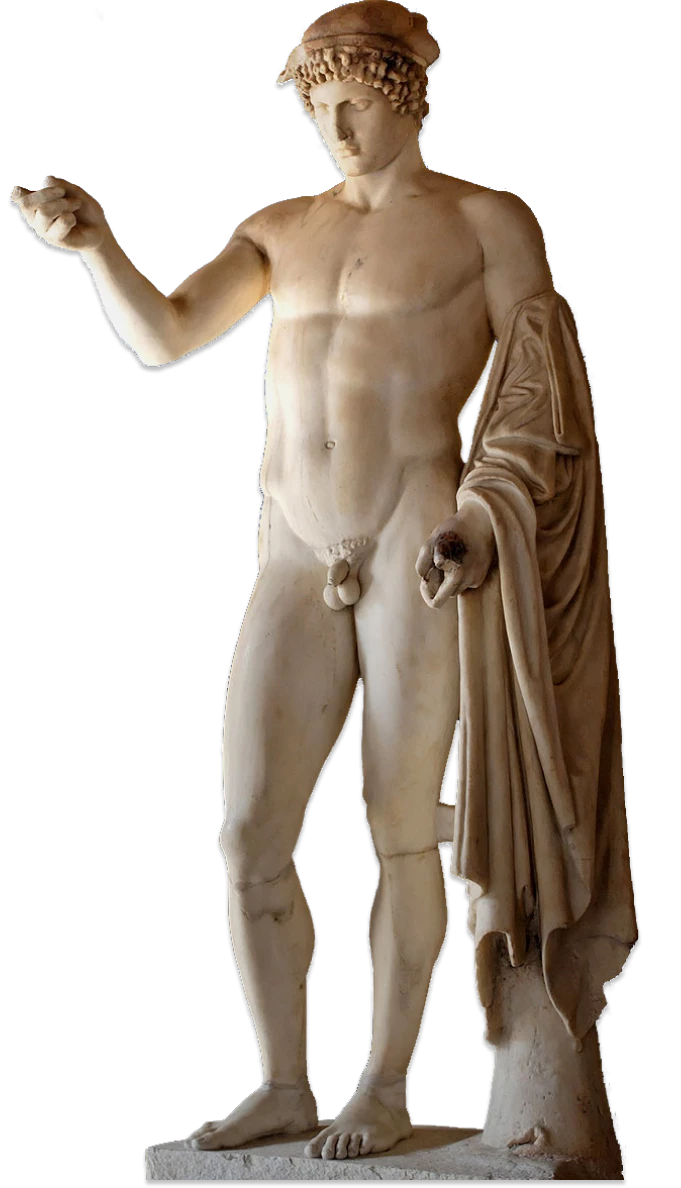
Private Ephesus Tour
%100 satisfaction guarantee
